I know, it sounds wrong. Google, a word used interchangeably with “search” so frequently that in 2006 it was added to the Oxford English Dictionary as a verb, meaning “to search for information … on the Internet.” Google is to search what Kleenex is to facial tissue and Xerox is to printing copies. It is synonymous with the service it provides. Why would anyone claim otherwise?
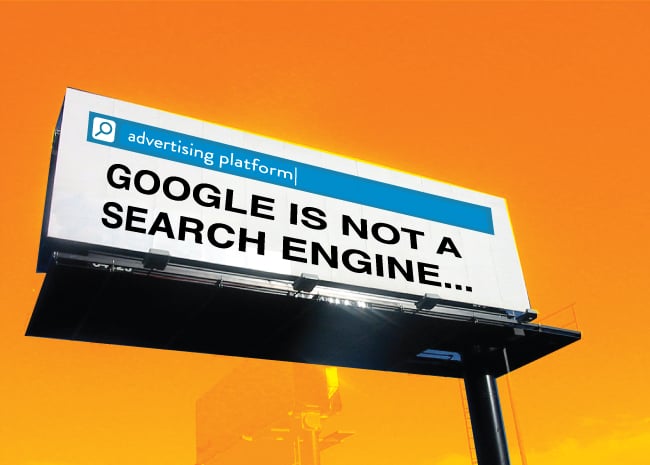
Because ultimately, Google’s purpose, priority, and truest form is an advertising platform. The search functions are just a means to that end.
You Are What You Do
Think of it this way: if someone earns their living working at a zoo, we call her a zookeeper. The person you call to fix a leak is a plumber. When you meet someone at a party, among the first questions you’re likely to ask — and be asked — is some version of “So, what do you do?”. And that’s how you tend to define that person. The question isn’t “how do you perform your job” or “what is involved in allowing you to make money” but simply “what’s your job”. If you met Google at a party and asked this same question, the best answer would be, “I’m in advertising.”
And this simple truth has big implications for everyone who wants — or believes they deserve — to rank in Google’s search results. Most people will say, “Google is a web search engine, and I have a website, therefore my website should appear in Google’s search results.” That is entirely the wrong perspective.
So let me be clear: whether you are in marketing, advertising, SEO, SEM, or simply trying to keep your small business afloat in a competitive market, Google has no vested interest in your success, or your visibility in organic search results. You’re on your own — unless you are buying ad space.
How Does Google Make Money?
Simply put, Google makes money by selling ad space within its search results, or SERPs.
There’s an old observation from the 1970s that has become particularly pertinent in the modern, digital world: If something is free, you are the product. Google provides free web search services in order to turn its users into a commodity: an audience for advertisers.This is the essence of Google’s business model; though the scale and sophistication is almost unprecedented, the basics are as old and familiar as the wheel. It is content marketing — and search results are the content drawing you in, making you feel like you’ve gotten something valuable for free so you’ll come back for more.
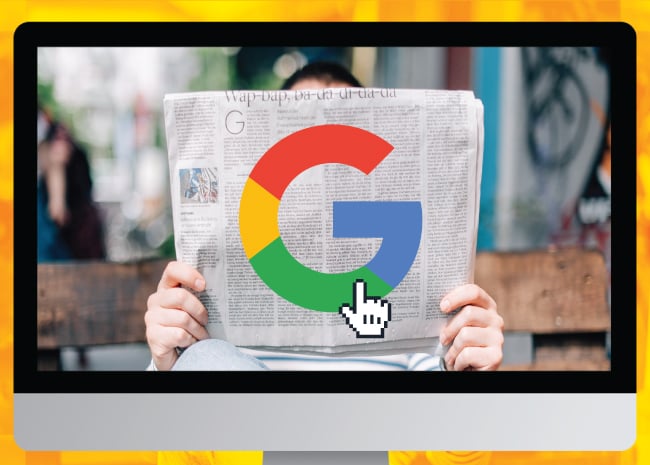
In many ways, Google isn’t all that different from print newspapers, magazines, radio, or television. All the information, entertainment, and media they provide the public (often for free) is really just a means of getting attention, and building audience loyalty. All these mediums use that audience to sell advertisements: by the inch, by the second, or in Google’s case, by the click and keyword.
Pay Per Click (PPC) Advertising
If you purchase a television ad, how do you know if it is working? By and large, you (and the people selling the ads) rely on correlational data: some number of people will probably see the ad, and some amount of the business you get after it plays is probably a result of the ad. Sometimes there’s a call to action tagged on at the end: “Mention this ad and get an extra discount!” But it is hard to know for sure what is working, or who is even seeing it.
Google, by virtue of being a web-based company, can go further than that: it can measure exactly how many people search for something, how many click on an ad, and how many of those who click go on to actually buy something, sign up for a mailing list, or in any other way “convert” from searcher to customer. So when you purchase an ad in Google’s search results, you aren’t paying for the ad space per se, you are paying for the clicks your ad earns by being put in front of searchers. Hence, Pay Per Click, or PPC.
AdWords
On its face, PPC seems like a pretty equitable way for Google to turn its global audience into a commodity for advertisers. But, some markets and industries are more crowded and competitive than others. Some customers are more profitable, and some search phrases are more likely to be used by customers ready to convert than others.
This is where AdWords comes in. AdWords is essentially eBay, but for keywords instead of products. Advertisers use Google’s AdWords to identify keywords they want to be associated with in the search results, and bid to have their ads featured at the top of the page. The more advertisers there are bidding on a keyword, the more the price per click gets driven up.
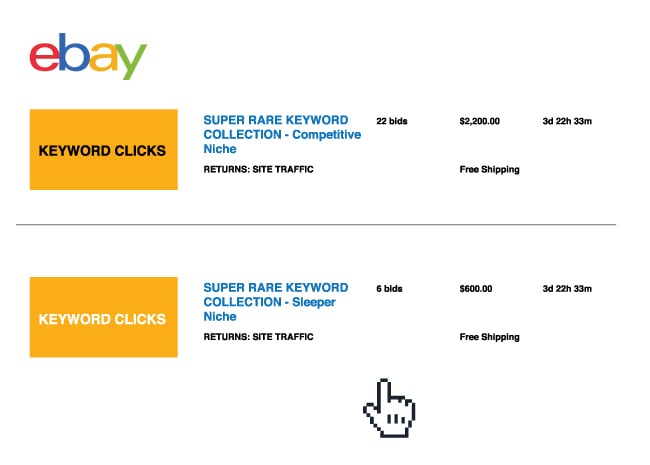
Multiply AdWords and PPC by the number of people searching on Google every minute of every day, and you can start to see just how lucrative the search marketing system is for Google. This may be the single largest, most reliable audience of any content marketing medium or platform in history — and Google knows more about its users than any television focus group or magazine subscription service could dream of.
Google Revenue and Audience Size
Google’s parent company, Alphabet, reported total revenues of just over 39 billion dollars in Q4 of 2018. Of that total, 27 billion dollars came from Google advertising — roughly 69% of all revenues were advertising sales. Although both Alphabet and Google are constantly growing, diversifying, and opening new revenue streams, that relationship between income and Google advertising has been pretty consistent historically. Revenues have also been growing by anywhere from 21% to 24% year over year, between 2017 and 2018.
By the numbers, Google is an ad company, and it is getting bigger all the time.
Google vs Television
To put Google’s purpose and business model into perspective, consider the most popular sitcom on American television in 2018: The Big Bang Theory.
Big Bang plays on the CBS network, which reported total Q4 revenues of four billion dollars in 2018. Like Google, CBS makes its money by selling ad time, and draws viewers with content. Big Bang’s audience size for Q4 of 2018 peaked at just about 13 million viewers — well above any other program in that time slot.
Google averages more than 3.5 billion searches per day, thanks to being the platform of choice for roughly 90% of all web searches. Granted, not all of those searches are lucrative spots to place an ad.
A search for “who is the current US president” doesn’t lend itself to a marketing message; people just want a name. But if you imagine that as little as one out of every 100 searches features ads, that means Google is still serving three times as many people on an average day (35 million) than the most-watched sitcom does on its very best day.
And unlike sitcoms, to which viewers may or may not be paying attention (or being accurately sampled and measured by networks), people using Google search are doing so purposefully, with the intent of actively engaging with the results, and Google is keeping tabs on all of their behavior.
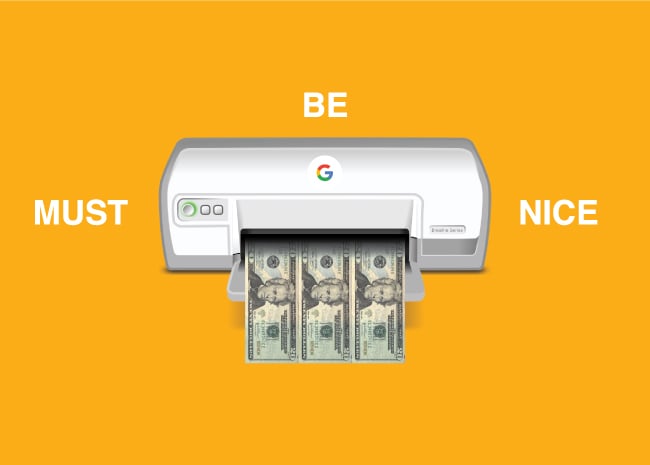
That is some seriously powerful content marketing. Thanks to paid advertising, Google is a virtual money-printing machine. Naturally, this makes other ad platforms — both search-based and elsewhere — feel a little left out.
Google is Not a Monopoly
In literal terms, Google is not a monopoly in that there are numerous other search engines available to any user with web access — Bing, Yahoo, and Yandex being the most popular, outside of more country-specific platforms like China’s Baidu.
But more to the point, Google is not an anti-competitive company when it comes to search. Per the Federal Trade Commission (FTC), antitrust laws are written to “prohibit conduct by a single firm that unreasonably restrains competition by creating or maintaining monopoly power.”
The FTC goes on to qualify the “unreasonable” part of the law, stating “the monopolist may be competing on the merits in a way that benefits consumers through greater efficiency or a unique set of products or services,” and “ … ‘the willful acquisition or maintenance of that power as distinguished from growth or development as a consequence of a superior product, business acumen, or historic accident.’”
In other words, if you beat out the competition by being inherently better, luckier, or both, you aren’t breaking the law. You’re just winning the game. Both luck and genuine superiority are both key to Google’s dominance of web search.
Google Must Compete for its Audience
Google is constantly tweaking, updating, and adding new features to its search services to stay relevant, appealing, and useful. In television, programs get canceled if they can’t find and keep an audience that advertisers want to reach. Google is really no different — it has to evolve to provide dynamic, relevant search results to keep people using it over and over. Other search engines didn’t evolve as quickly or effectively when the World Wide Web was first becoming a fact of life, so Google managed to make itself synonymous with search.
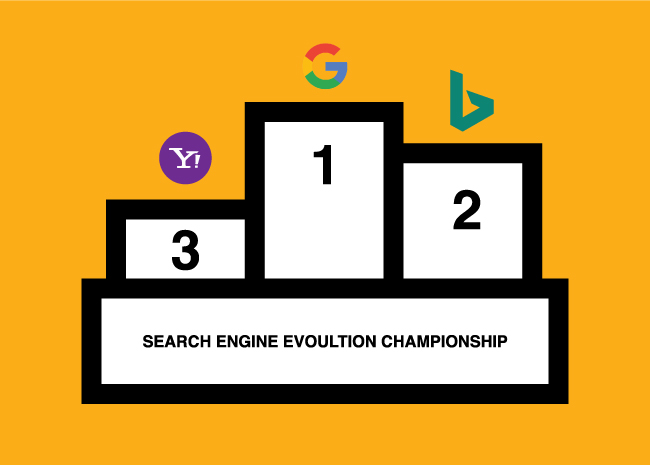
All of this matters deeply to businesses advertising on Google, marketers trying to rank content organically, or both. Google doesn’t care about your site, brand, content, or SEO strategy on an individual level. It is focused on crawling, indexing, and analyzing the entire World Wide Web in order to constantly and consistently provide the best results, period. You aren’t entitled to rank or appear in the SERPs — you have to provide value to searchers, otherwise you aren’t helping Google reach and engage its users.
What it Takes to Rank Organically
To use the example of television again: if you want to be seen by audiences of The Big Bang Theory, you have essentially two options:
- Join the cast. Feature on the program itself as a guest star, background extra, or new character. In other words, be part of the content they are tuning in for.
- Pay for ads during the broadcast, and hope that people keep watching during the ad breaks. In other words, piggy-back on the content they are tuning in for.
It isn’t easy for actors to get on television, much less the most popular sitcom of the day. You need either great name recognition and cultural cachet, or incredible skill and broad appeal, and even then you need to capture the attention and support of the right people (producers, directors, other actors and industry insiders) just to have a shot at landing a role.
Search is exactly the same: there are a lot of websites looking for attention. To rank, yours needs to have either great name recognition (domain authority and existing traffic/engagement), or incredible appeal (great content and topical expertise).
Even if you have some combination of these things, you still need to capture the attention and support of the right people (online, that means getting backlinks from other trusted, authoritative websites to your content) to even have a shot at ranking for a given query.

The alternative to fighting your way to the top of the SERPs is to bid for AdWords and pay to have your ad featured, but this is still intrinsically competitive and potentially expensive.
Content Marketing Isn’t Free, Fast, or Easy
Google is an ad platform. It works by drawing in a massive audience through its search tool and features, but this is just a new and interactive form of content marketing.
At the end of the day, you are better off thinking of Google as the latest addition to the world of news and entertainment — and recognizing that Google, like every other form of media, has to fight to reach, and retain, its audience. You can’t expect to rank just because you have a website, or did some light SEO to be discovered. Plenty of actors move to LA every year; few ever achieve stardom or become household names.
The good news is, it is still possible to get your content to rank — much easier than it is for actors to get discovered. Just know that it takes time, work, the right expectations, and above all, a strategy that works within the system.
Google needs to be able to discover, understand, and recall content effectively for it to continue to draw searchers (and advertisers) in with its SERPs. SEO is the practice of working with Google’s algorithm and business structure to add value to the SERPs and reach searchers. Like celebrity, you can’t plan on it happening overnight, and there are no reliable shortcuts, but persistence, strategy, and expert help can enable you to get you the results you’re seeking.

